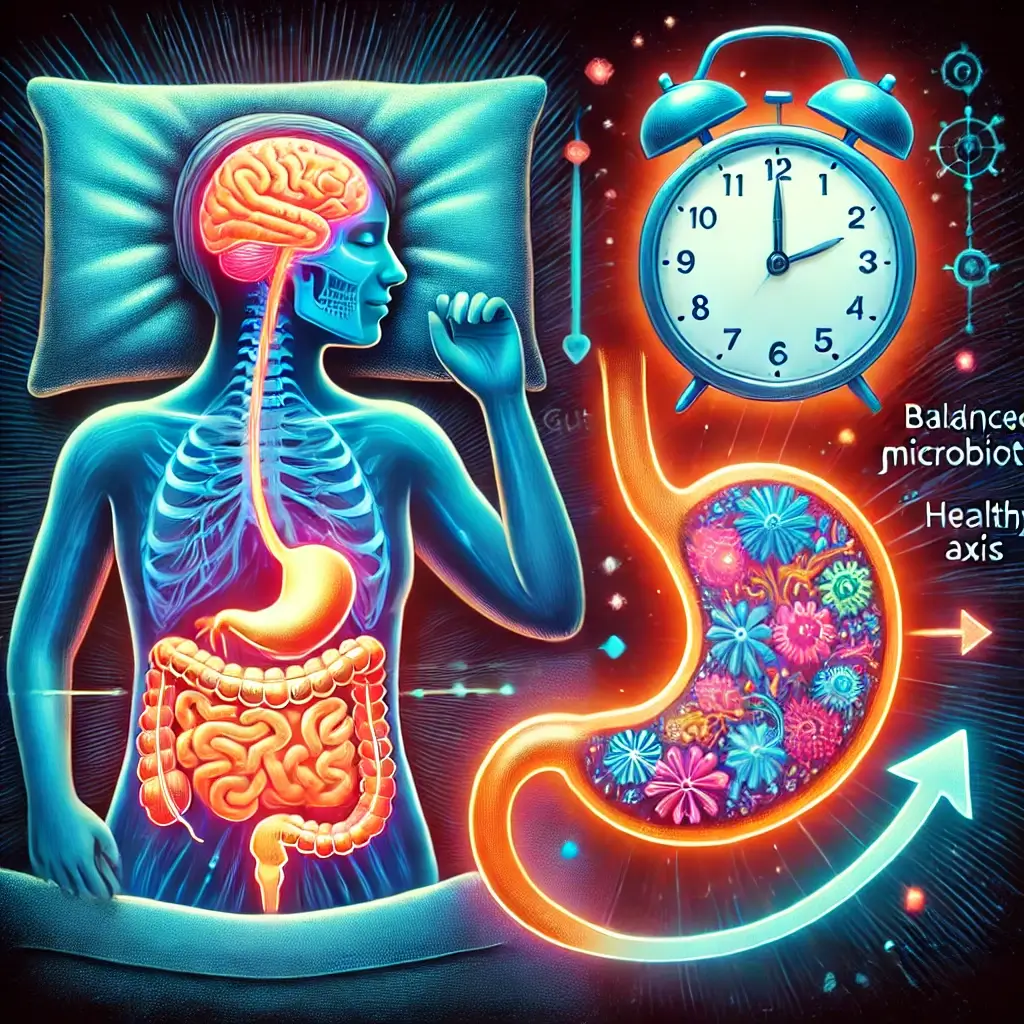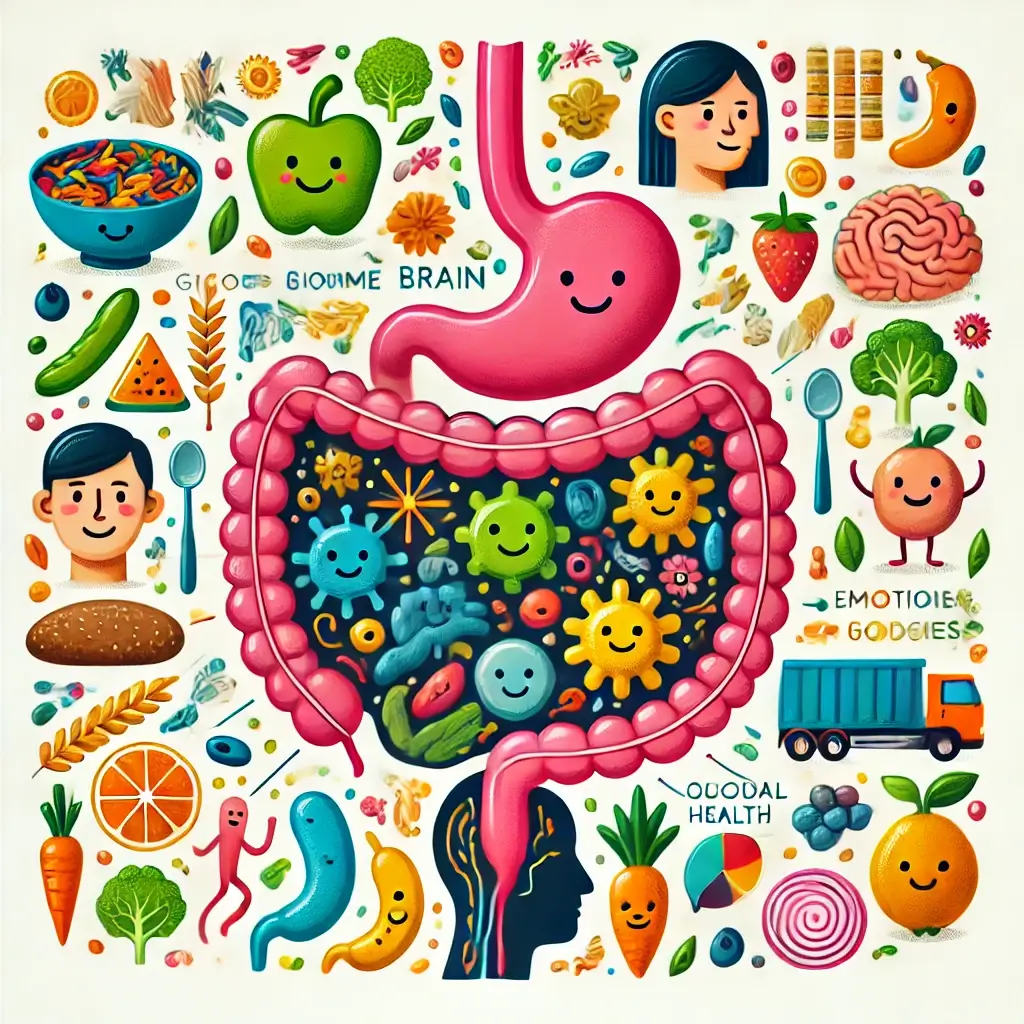Unlocking Wellness: How Modern Science Links Diet, Gut Health, and Disease Prevention
Understanding Your Body’s Microorganism City
Imagine a bustling city of microorganisms working tirelessly to keep your body functioning optimally. This metropolis is your gut microbiome—a complex ecosystem comprising trillions of bacteria, fungi, and viruses. These tiny inhabitants have far-reaching effects on digestion, immunity, mental health, and metabolic functions like blood sugar regulation.
The Diet-Microbiome Connection
Recent advancements in microbiome research underscore the profound connection between diet and gut health. Scientists are now unraveling how specific foods can shape the composition and diversity of the microbiome, influencing long-term health outcomes. A thriving microbiome not only enhances digestion but also protects against chronic conditions such as inflammatory bowel disease (IBD), obesity, and even depression.
Exploring Scientific Findings
In this article, we delve into the latest scientific findings and practical dietary strategies for cultivating a robust gut microbiome. From prebiotic fibers and fermented foods to cutting-edge discoveries about polyphenols, we’ll guide you through the steps to build a gut-friendly lifestyle.
Understanding Prebiotics
Prebiotics are specialized plant fibers that nourish beneficial gut bacteria. When fermented, these fibers produce short-chain fatty acids (SCFAs), which have anti-inflammatory properties and strengthen the intestinal barrier (Scott et al., 2020).
Prebiotic-Rich Foods
Chicory Root: Rich in inulin, chicory root supports the growth of Bifidobacteria, a crucial bacterial genus for gut health.
Asparagus and Garlic: These vegetables are high in oligosaccharides, which promote beneficial microbial activity.
Bananas and Berries: Containing resistant starches for long-term gut health.
Including a variety of these foods in your diet can encourage microbial diversity, a key indicator of a healthy gut.
The Power of Probiotics
Probiotics are live microorganisms that, when consumed, confer numerous health benefits. They not only enhance gut microbial diversity but also help prevent and treat gastrointestinal disorders like diarrhea, IBD, and irritable bowel syndrome (IBS) (Ouwehand et al., 2018).
Finding Probiotic Sources
Fermented Dairy: Yogurt and kefir contain Lactobacillus and Bifidobacterium strains, which are linked to improved digestion and immune support.
Non-Dairy Fermented Foods: Kimchi, sauerkraut, and fermented soy products like natto are excellent probiotic sources for plant-based diets.
Probiotic Supplements: While foods are preferred, high-quality supplements can fill gaps for individuals with specific digestive issues.
Polyphenols and Gut Health
Polyphenols, plant compounds found in fruits, vegetables, and teas, have emerged as a novel area of microbiome research. These compounds are metabolized by gut bacteria, yielding metabolites that reduce inflammation and oxidative stress (Cardona et al., 2013).
Polyphenol-Rich Food Sources
Green Tea: Rich in catechins, green tea supports the growth of anti-inflammatory bacteria.
Dark Chocolate: Contains flavonoids that promote beneficial microbial strains like Lactobacillus.
Berries: Blueberries and blackberries are loaded with polyphenols that improve gut barrier integrity.
Foods to Avoid
To cultivate a healthy microbiome, it’s equally important to avoid foods that disrupt gut balance:
Processed Foods: High in refined sugars and devoid of fiber, processed foods encourage the growth of harmful bacteria.
Artificial Sweeteners: Research suggests that sweeteners like aspartame can negatively alter microbial composition, impairing glucose metabolism (Suez et al., 2014).
High-Fat Diets: Excessive saturated fats can lead to gut inflammation and reduced microbial diversity.
Creating a Gut-Healthy Routine
Prioritize Variety: Include a range of colorful fruits, vegetables, and whole grains to support diverse bacterial populations.
Combine Nutrients: Pair polyphenols with prebiotic fibers to enhance their effects on the microbiome.
Stay Hydrated: Water aids in digestion and nutrient absorption, fostering an optimal gut environment.
Manage Stress: Chronic stress disrupts gut health. Practices like mindfulness and yoga can help maintain a balanced microbiome.
Final Thoughts
Your gut microbiome is a cornerstone of your health, influencing physical, mental, and even emotional well-being. By embracing science-driven dietary strategies—emphasizing prebiotics, probiotics, and polyphenols while limiting harmful foods—you can cultivate a thriving gut ecosystem. The journey to a healthier gut is not a quick fix but a lifelong commitment to balanced, intentional eating.
Additional Resources
For personalized guidance, consult a registered dietitian or healthcare provider. Dive into the references below to explore the cutting-edge science behind gut health and its profound impact on your life.
References
Cardona, F., et al. (2013). Benefits of polyphenols on gut microbiota and implications in human health. The Journal of Nutritional Biochemistry, 24(8), 1415–1422.
Ouwehand, A. C., et al. (2018). Probiotic and other functional microbes: From markets to mechanisms. Current Opinion in Biotechnology, 49, 129–133.
Scott, K. P., et al. (2020). Short-chain fatty acids and human colonic health: Roles of microbiota in production and metabolism. Physiological Reviews, 100(1), 111–148.
Suez, J., et al. (2014). Artificial sweeteners induce glucose intolerance by altering the gut microbiota. Nature, 514(7521), 181–186.













